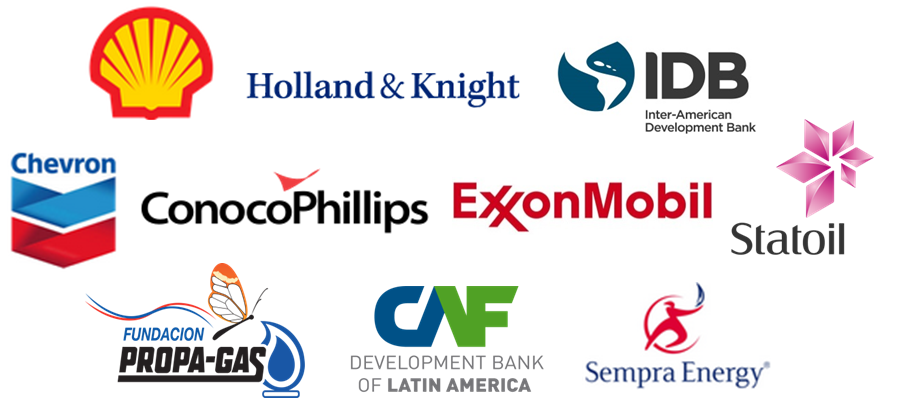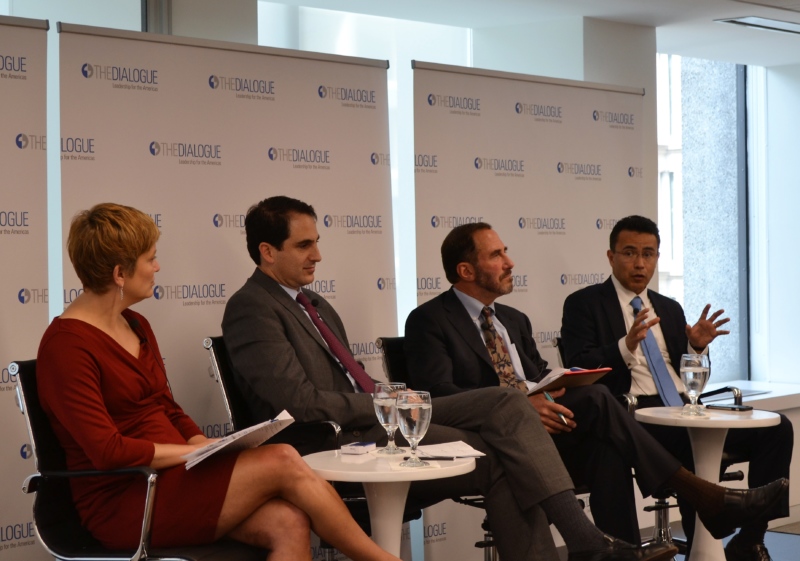Rising Brazil: The Choices Of A New Global Power
What should we expect from a newly powerful Brazil? Does the country have the capacity and leadership to be a central actor in addressing critical global and regional problems?
Latin America faces many challenges in developing its energy resources and providing clean, affordable and reliable energy. With presidential elections in Brazil, Mexico and Colombia next year, there is considerable uncertainty about future energy policy, as potential candidates in these countries have presented widely varying energy and economic policy platforms. The US-Latin America energy relationship is also changing, with US foreign policy more focused on increasing pressure on Venezuela, revising trade terms with Mexico and boosting natural gas exports to the region. These were the key points discussed by panelists and keynote speakers at the Inter-American Dialogue’s Latin America Energy Conference in Washington, DC on October 25th.
In his keynote remarks, Representative Jeff Duncan (R-SC) emphasized the importance of hemispheric energy independence and US cooperation with its neighbors from Canada to the Southern Cone. Representative Duncan stressed the importance of NAFTA and bilateral free trade agreements in the region, noting that while there is room for modernization, he has “seen the benefit of [these] agreements [both] in those countries and for United States producers” and he hopes to see this cooperation continue into the future.
Sue Saarnio, principal deputy assistant secretary at the Department of State’s Bureau of Energy Resources, also expressed optimism regarding US-Latin America energy cooperation noting that, “the energy transformation we see in the US is going to benefit the whole region.” For example, the United States is now a net exporter of LNG, providing an opportunity for neighboring Caribbean countries to replace more expensive oil imports with US natural gas. Floating storage and regasification units (FSRUs) are also bringing US natural gas to countries like Brazil and Argentina, allowing these countries to meet their energy needs with imported gas without investing in costly regasification plants.
In Latin America, energy producers will need to attract additional investment in order to increase oil and gas production in the region, but political uncertainty continues to weigh on investors, according to panelists. In Mexico, for example, reforms are projected to eventually reverse the decline in oil production, but recent investments will take years to yield results. This could bolster support for Andrés Manuel López Obrador, who opposes the reform. In Colombia, complicated processes to secure licenses for projects and the upcoming presidential election also create uncertainty, with several of next year’s candidates opposing hydrocarbons development due to social and environmental concerns. Meanwhile, the political climate in debt-ridden Venezuela continues to limit much needed foreign investment, especially with recent US sanctions limiting access to credit and the possibility of more wide-ranging sanctions in the future. In contrast, in Argentina, President Macri’s investor-friendly reform agenda was bolstered by his party’s gains in recent mid-term elections, which sent a positive signal to the oil and gas industry.
Panelists also discussed the importance of developing renewable energy in Latin America and the Caribbean. The region has enormous renewable energy potential, which could be exploited with increased cross-border electricity integration. Increased integration would simultaneously lower generation costs and help combat the intermittent nature of renewable energy sources, providing additional security in the event of prolonged drought or other extreme weather events. But a lack of harmonized regulatory frameworks and national security concerns continue to hinder further integration. Caribbean nations – which would benefit from increased investment in both renewable energy and natural gas infrastructure – face the additional challenge of the small scale of their markets, which make attracting investment very challenging.
Going forward, panelists concluded, US-Latin America energy trade and cooperation will continue to play a vital role in the Western Hemisphere’s energy future. Though upcoming elections create a degree of uncertainty about the future of market-oriented reforms, there are many opportunities for Latin America and the Caribbean to attract investment and develop oil, natural gas and renewable energy sources.
Read coverage of the Latin America Energy Conference in the Oil and Gas Journal.

What should we expect from a newly powerful Brazil? Does the country have the capacity and leadership to be a central actor in addressing critical global and regional problems?
President Lula da Silva triumphantly announced that he and his Turkish counterpart had persuaded Iran to shift a major part of its uranium enrichment program overseas—an objective that had previously eluded the US and other world powers. Washington, however, was not applauding.
Hugo Chavez, the Venezuelan president, has clearly been enticed by the Libyan drama, where his longtime friend and ally, Muammar al-Qaddafi, is under siege from rebel forces.
 Inter-American Dialogue
Inter-American Dialogue